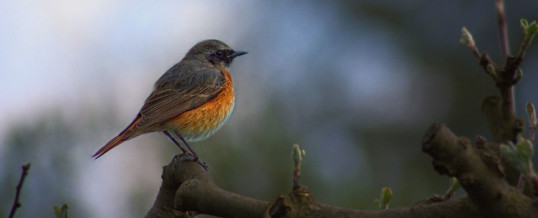
In life and in death we belong to God.[1]
We do not live to ourselves, and we do not die to ourselves.
If we live, we live to the Lord, and if we die, we die to the Lord; so then, whether we live or whether we die, we are the Lord’s. For to this end Christ died and lived again, so that he might be Lord of both the dead and the living.[2]
These confessions are at the heart of who we are as Christians. We are the Lord’s in our living and in our dying. Christians may approach death with confidence knowing to whom we belong.
In the spring of 2016 the Grace Presbyterian Session formed a study group to consider creating a memorial garden for ashes on our church grounds. At the time study group members included: Carol Graham, Max McIntire, Jim Remsberg, Bob Ross, Edith Tice, and Norman Tice. Janet Rhoads and Hal Pluenneke joined the group in December. Catherine Neelly Burton and Martin Burch also participated. The group consulted with Scott Eads on legal matters.
In conversation with the Session it became apparent that there are two major components to this decision, practical and theological.
Practical Details, Questions and Answers
- Legality: There is nothing to prohibit us from establishing a memorial garden on grounds. Two churches in our neighborhood, St. James and East Heights have memorial gardens. We were also in contact with First Presbyterian and Good Shepherd Episcopal, two churches in Wichita that have memorial gardens.
- Location: The study group recommends that the memorial garden be placed to the east of the Great Room in the mulch area north of the fountain. The group recommends that the church purchase a granite monument for the space. Markers will go on the monument. Ashes will be placed in the ground with no markers.
- Upkeep: This location requires little, if any, upkeep.
- Cost: There is a onetime cost of $4000 for the granite monument. The study group recommends that the funds come from the facility endowment. The proposed policy states that there is a $500 fee to bury ashes on the grounds. This fee covers the cost of the plaque on the monument (approximately $100-150), and the remainder of the funds go into the facility endowment. The policy notes that the fee may be waived or altered at the discretion of the session.
- The establishment and maintenance of a Memorial Garden is a means to serve the congregation. It will be available to all but not pushed upon anyone.
- “I’m planning to be buried at a cemetery in a casket. Is there any way for me to be part of the Grace memorial garden?” We cannot bury caskets at Grace, but you may pay the $500 fee and have your name added to the monument.
- “Why that location?” After looking at different locations on the Grace property this was determined to be the best. It is a quiet space and not one where yard/water games take place. There are already benches near the fountain should someone want to sit near the memorial garden.
Theological Details, Questions and Answers
- None of us know what happens when we die. Catherine often use a simple phrase credited to her seminary professor: “When we die we immediately go from one hand of God’s to another.”
- Scripture gives varying accounts of death and resurrection. 1 Corinthians 15:35, 40-42 says:
35 But someone will ask, “How are the dead raised? With what kind of body do they come?” 40 There are both heavenly bodies and earthly bodies, but the glory of the heavenly is one thing, and that of the earthly is another. 41 There is one glory of the sun, and another glory of the moon, and another glory of the stars; indeed, star differs from star in glory. 42 So it is with the resurrection of the dead. What is sown is perishable, what is raised is imperishable
- Our confessions also make statements about death:
The chosen departed are in peace, and rest from their labors; not that they sleep and are lost in oblivion as some fanatics hold, for they are delivered from all fear and torment, and all the temptations to which we and all God’s chosen are subject in this life…
-The Scots Confession – “The Immortality of Souls” – 3.17
The bodies of men, after death, return to dust, and see corruption; but their souls (which neither die nor sleep), having an immortal subsistence, immediately return to God who gave them. The souls of the righteous, being then made perfect in holiness, are received into the highest heavens, where they behold the face of God in light and glory, waiting for the full redemption of their bodies…
-The Westminster Confession of Faith – “Of the State of Man After Death, and of the Resurrection of the Dead” – 6.177
- “What does the Bible say about cremation?” The Bible does not say anything about cremation. In the early church years cremation was only a pagan practice. In the last 100 years, many Christians have begun to engage in cremation.
The congregation is invited to a conversation about the proposed memorial garden on Sunday February 19 at 2 pm in the Grace parlor. The creation of a garden is a session decision, and the session would like to hear questions and/or concerns. The full proposed policy will be available at the February 19 meeting or sooner by request.
[1] From ‘A Brief Statement of Faith’ PCUSA Book of Confessions
[2] Romans 14:7-9
ShareJAN
